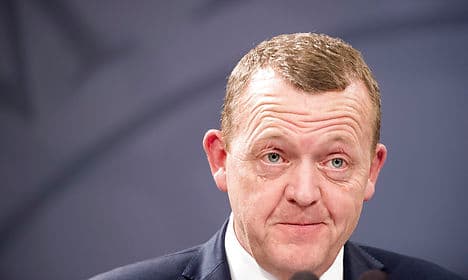Danes' snub of closer EU ties 'gut punch for elite'

A Danish 'No' in a referendum on adopting EU rules on cross-frontier policing shows a growing chasm between the public and the establishment, politicians and commentators said on Friday.
Against the backdrop of Europe's refugee crisis, much of the debate on whether Denmark should give up its exemption on EU justice policies came to be about the wider issue of Copenhagen's ties with Brussels.
The 'Yes' side had advocated for international coordination in the fight against cross-border crime, including violent extremism.
But the 'No' camp won the Thursday referendum with 53.1 percent of the vote, an outcome the tabloid BT called "a gut punch for the elite".
It said the majority of the people had been "rather indifferent" towards the many newspapers and a majority of lawmakers in favour of a 'Yes'.
"Thursday's vote underscored Denmark's reputation as one of the most sceptical populations in the EU," editor Olav Skaaning Andersen wrote.
Much of the 'No' side's success was due to skilful campaigning by the eurosceptic, anti-immigration Danish People's Party (DF), the right-wing Jyllands-Posten daily said.
"Although the party is the biggest in the right-wing bloc, it continued to benefit hugely from portraying itself as the antithesis of the elite," it said.
Left-leaning rival Politiken said there were several factors behind the outcome.
"A possible explanation is the growing number of refugees. Another is a cocktail of euroscepticism and a deep distrust of politicians. Not least among the young," it wrote.
Prime Minister Lars Løkke Rasmussen admitted there was "considerable scepticism about the European project" among Danes, as he reflected on the outcome.
"We need common sense back. Most people can see that the single market is a good idea" but the bloc needed "a better balance," he said.
He underscored the need for a "strong EU where it makes a real, positive difference. A slimmer EU where the individual countries in a more meaningful way can solve the problems in their own way."
Voters seemingly wanted a stronger EU on issues like protecting the bloc's borders, but were also concerned over potential abuse of Denmark's social welfare systems by European workers, he said.
Thursday's referendum was Denmark's seventh vote on its relationship with Europe since joining the EU in 1973.
Denmark negotiated its exemptions on EU justice rules with Brussels in 1993 as a condition for accepting the Maastricht Treaty, which voters had rejected in a referendum the previous year. Denmark was also granted an opt-out on defence matters and was allowed to keep the krone rather than adopt the euro.
Comments
See Also
Against the backdrop of Europe's refugee crisis, much of the debate on whether Denmark should give up its exemption on EU justice policies came to be about the wider issue of Copenhagen's ties with Brussels.
The 'Yes' side had advocated for international coordination in the fight against cross-border crime, including violent extremism.
But the 'No' camp won the Thursday referendum with 53.1 percent of the vote, an outcome the tabloid BT called "a gut punch for the elite".
It said the majority of the people had been "rather indifferent" towards the many newspapers and a majority of lawmakers in favour of a 'Yes'.
"Thursday's vote underscored Denmark's reputation as one of the most sceptical populations in the EU," editor Olav Skaaning Andersen wrote.
Much of the 'No' side's success was due to skilful campaigning by the eurosceptic, anti-immigration Danish People's Party (DF), the right-wing Jyllands-Posten daily said.
"Although the party is the biggest in the right-wing bloc, it continued to benefit hugely from portraying itself as the antithesis of the elite," it said.
Left-leaning rival Politiken said there were several factors behind the outcome.
"A possible explanation is the growing number of refugees. Another is a cocktail of euroscepticism and a deep distrust of politicians. Not least among the young," it wrote.
Prime Minister Lars Løkke Rasmussen admitted there was "considerable scepticism about the European project" among Danes, as he reflected on the outcome.
"We need common sense back. Most people can see that the single market is a good idea" but the bloc needed "a better balance," he said.
He underscored the need for a "strong EU where it makes a real, positive difference. A slimmer EU where the individual countries in a more meaningful way can solve the problems in their own way."
Voters seemingly wanted a stronger EU on issues like protecting the bloc's borders, but were also concerned over potential abuse of Denmark's social welfare systems by European workers, he said.
Thursday's referendum was Denmark's seventh vote on its relationship with Europe since joining the EU in 1973.
Denmark negotiated its exemptions on EU justice rules with Brussels in 1993 as a condition for accepting the Maastricht Treaty, which voters had rejected in a referendum the previous year. Denmark was also granted an opt-out on defence matters and was allowed to keep the krone rather than adopt the euro.
Join the conversation in our comments section below. Share your own views and experience and if you have a question or suggestion for our journalists then email us at [email protected].
Please keep comments civil, constructive and on topic – and make sure to read our terms of use before getting involved.
Please log in here to leave a comment.